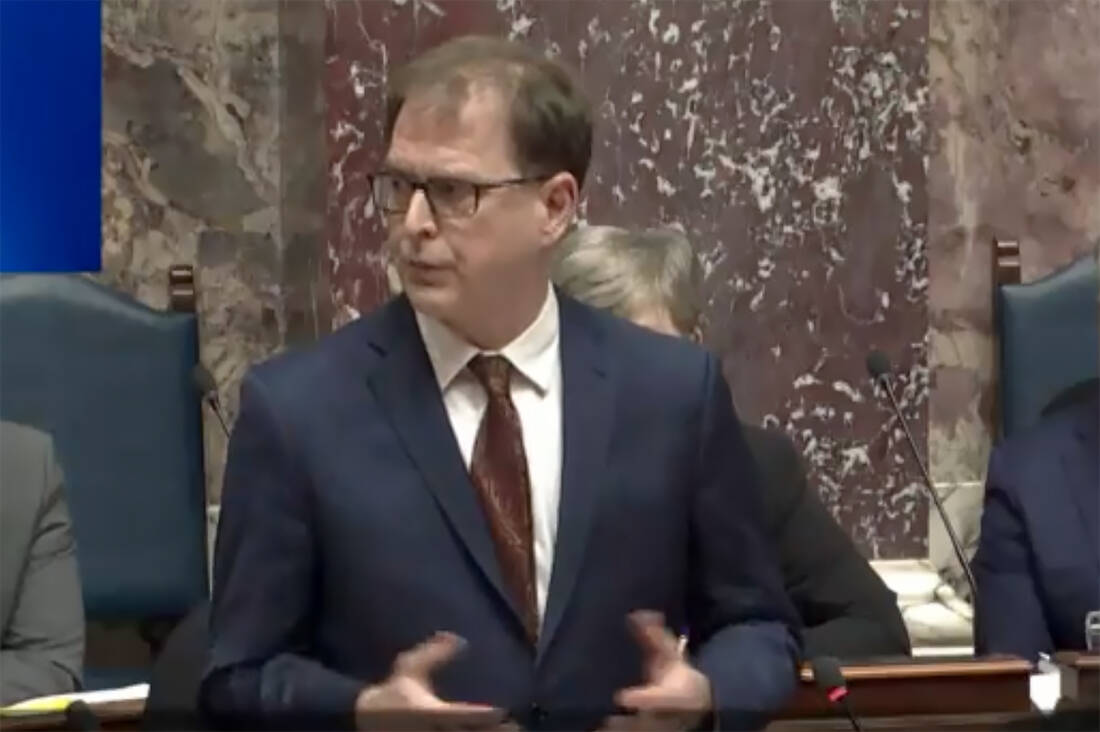A leaked memo telling health care workers in northern B.C. that patients can use drugs while in their rooms and keep knives under four-inches sparked a heated debate in the provincial legislature Wednesday afternoon.
But the Ministry of Health says that the Northern Health “should have reconsidered how it phrased this memo” with actual policy superseding the “guidance” offered in the memo.
The memo, dated July 7, 2023, provides guidance to Northern Health staff following what it calls an “increase in admissions of patients with possession of substances and using substances while in hospital.”
Hospital workers are told that the decriminalization of drugs means that staff should neither be searching patients’ personal belongings for substances nor taking them away if found.
“These can remain with the patient,” it reads. “Patients can use substances while in hospital in their rooms — they can either be provided with a Narcan kit or have one available. If a patient has overdosed on substances, we use Narcan and provide teaching.”
Staff are also told not remove personal items from the rooms of patients, “even if there is a knife or something considered as a weapon under 4-(inches) long,” it reads.
“We use our best professional judgement on this and risk of violence factors. The patient is asked to lock it up or ask someone to bring it home for them. We do not remove substances or vape pens, pipes or anything of the sort. They remain with the patient.”
Staff are also asked not to call RCMP or security to go through personal items.
“Police are only called for gunshot wounds and stabbings and related concerns,” it reads. “We can offer to lock up items for patients instead if they wish to do so.”
The memo stressed that health workers are not “law enforcement” and that they have never been responsible for “ensuring (patients) are not in possession of unlawful substances.”
Staff responsibility lies with the safety of patients, visitors, staff and physicians within a “reasonable” balance.
“Substance possession/use in and of itself is not the issue we need to manage or address; it is the associated behaviours,” it reads.
BC United’s Shirley Bond, who introduced the memo during debate, cited it as evidence of the NDP having “created a free-for-all with open drug use” in calling for the end of decriminalization.
“Courageous nurses are coming forward all across British Columbia with alarming accounts of daily encounters with meth, cocaine and fentanyl use in our hospitals,” she added.
BC United’s Elenore Sturko said nurses “are so exposed to drug smoke that they have to visit the emergency room” and “many fear for their safety because of the weapons that are now permitted.”
Health Minister Adrian Dix responded by saying it is important to ensure the safety of nurses.
“I think the priority of addressing the safety of health care workers, of doctors and nurses, of health sciences professionals in all of our health care institutions is a singular priority of all of us,” he said. “I think everybody who works in the health care system, who visits a public hospital, knows it is absolutely unacceptable for people to have weapons in public hospitals.”
RELATED: Possession of 2.5 grams of illicit drugs to be decriminalized in B.C.
Dix said he has visited 31 hospitals in past few months.
“In every one of them, we work together to ensure that people are safer in our public hospitals and in other health care facilities,” he said.
Mental Health and Addictions Minister Jennifer Whiteside said “health care workers on the front lines” are leading the response to the toxic drug crisis.
“I will say with respect to decriminalization that it was never intended and the objective of that program is not, to promote unfettered public drug use, which is why our government has taken measures to ensure that that program is delivered appropriately,” he said.
Responding to media’s request, Dix’s ministry later sent out a statement with Northern Health’s actual policies.
“Possession and use of controlled substances are prohibited for all clients in emergency departments, any unit where clients under the age of 18 are present, inpatient psychiatric units and inpatient withdrawal units,” it reads, adding that smoking or vaping in indoor settings is prohibited.
“It should also be noted that weapons are not permitted in NH workplaces.”
According to the statement, workers are not required to continue offering service or care under circumstances that “present a danger or perception of danger to themselves or others” and that “health authorities are taking additional steps to ensure hospital staff have received appropriate education to support responses to incidents involving patient possession of drugs/substances while in hospital, including safety protocols the use of personal protective equipment.”

